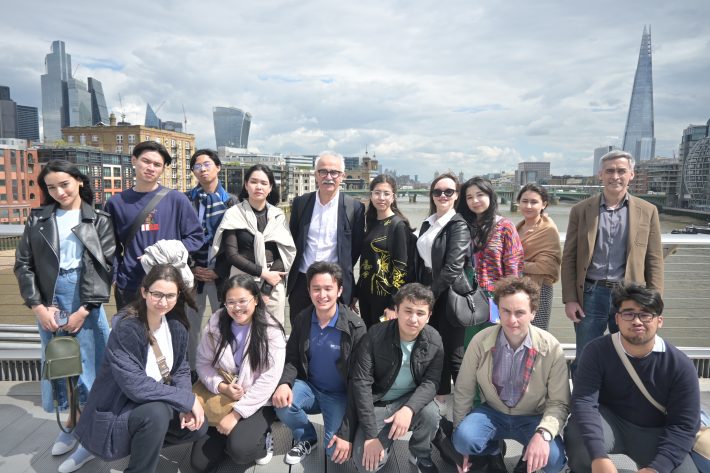We have always felt like a part of the University of Westminster, as my university, Westminster International University in Tashkent, is accredited to provide UK degrees. However, the connection and also the difference was felt during my recent visit to two conferences organized by the Democratic Education Network (DEN) society.
Thrilled and full of wonderful impressions from the architecture of the city and anticipation of making new acquaintances, I came face to face with the harsh realities of the modern world. The first conference on racism in higher education reminded me of the work and improvements we still need to introduce to make the world more equal and better for everyone. The struggles of black women in their career growth, fear of Muslim people, and unjustified hate toward Jewish all were topics touched upon in the first conference. As a person born and living in a young country focused on development and growth, many concepts discussed were either new or almost non-existent despite our awareness of them. It is worth noting that as an economist, we raise the topic of the necessity of equal rights for all people despite their race, religion, national origin, or colour. Yet, it was a new experience to hear from people who fight racism daily. Microaggressions were one of the striking topics for me, as I learned that unwelcomed curiosity could hurt others’ feelings though most probably done unintentionally.
The second day was different in many aspects, although the discussions and concerns raised were not of less importance than in the first conference. The sixth annual DEN conference hosted more students than professionals to share their views. As the name suggests, the event involved a lot of networking and learning about our differences. The students have been bold enough to shake what is perceived as conventional and normal. By following the presentations of the University of Westminster students, I observed critical thinking and something known as thinking outside of the box. Familiar with the uneasiness of standing and presenting in front of a large audience, I esteem the efforts of these students to bring up important topics on sovereignty, freedom, and mental health.
The immense share of work done by Dr. Farhang Morady and Dibyesh Anand could not be overlooked either. They brought together many students of different backgrounds and created an exceptional society to express, discuss and connect. By inviting students like us from Uzbekistan, Thailand, and Norway and local students from other universities, Dr. Farhang Morady was able to promote networking and foster new ideas.
Munira Zakirova, Westminster International University in Tashkent, Uzbekistan

XSWade
Any ëè÷íîñòü can download instagram videos after really reading this article